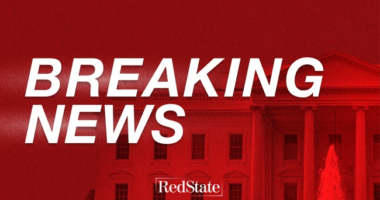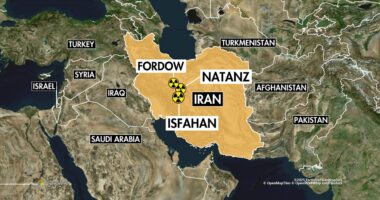
Following his return to the political scene, President Donald Trump has been actively engaging in both domestic and foreign policy matters. Amidst his focus on domestic issues, he is also addressing foreign policy concerns, including rectifying a significant error made during Joe Biden’s tenure that was attempted to be concealed as they left office.
During Biden’s administration in 2021, the decision was made to revoke the foreign terrorist organization (FTO) designation of the Houthis. Subsequently, the Houthis escalated their activities and displayed increased aggression, particularly in the Red Sea region.
The History of the Houthi’s Terror Designation
In contrast, towards the end of his presidency in 2021, Trump took measures to officially designate the Houthis as an FTO and as specially designated global terrorists (SDGT). This strategic move was intended to disrupt the group’s financial channels and operational capabilities, significantly impacting their activities in the region.
However, shortly after taking office, Biden revoked the designations, citing humanitarian concerns and warnings from foreign aid organizations. At the time, the Biden administration argued that the FTO label hindered the delivery of food and medical aid to Yemeni civilians. However, it allowed the Houthis to continue their military activities, including attacks on civilian and military targets in the Red Sea.
Days before leaving office, however, Biden reinstated the SDGT designation after months of Houthi aggression in the Red Sea. By simply focusing on the SDGT label, the Biden administration was hoping to still cripple the organization’s funding while avoiding any humanitarian issues.
Trump’s New Executive Order
However, Trump wasted no time in targeting the group for full FTO status, which would severely limit how much aid went into Yemen, effectively strangling the Houthis from receiving assistance from anyone except their current backer, Iran.
Trump’s executive action re-applied the FTO status to the Houthis, while also directing incoming Secretary of State Marco Rubio to complete the designation process within 15 days. It also orders USAID to review and terminate contracts with any organizations working with the Houthis.
The Trump administration is argues that the Biden approach was too soft, effectively emboldening the Houthis. The organization launched more than 100 attacks on commercial vessels and U.S. Navy ships in the Red Sea in recent years.
The Difference Between FTO and SDGT
While both designations label an organization as a terrorist group, their legal implications in the U.S. are vastly different. SDGT status is considered the less “harsh” of the two and primarily focuses on financial restrictions without carrying the same legal weight as FTO status.
The FTO designation imposes far stricter penalties on the organization, including travel bans for members and criminalizing support for the group. Trump re-designating the Houthis as an FTO will bring about broader legal and enforcement powers against both individuals and organizations supporting them.
A Shift in Foreign Policy
The move not only goes after the Houthis but also works toward normalizing relations with Saudi Arabia and UAE – relations that were heavily strained under Joe Biden.
Several humanitarian groups remain critical of the move, but it does show the Trump administration is taking threats in the Red Sea and to our allies very seriously. While relations in the region return to normal, Trump’s actions go a long way to help bring stability to a region plagued by instability, particularly as the Biden administration seemed content to let the Middle East burn.
















